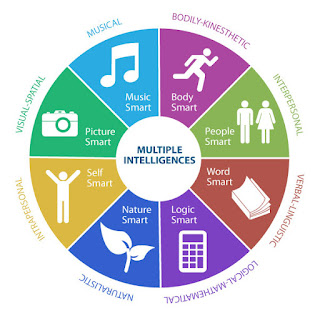Standardized testing as a metric for learning.
There are and will always be debates when it comes to measuring knowledge. Even in our daily
basis, we always tend to think that the information we want to share is true and the others' is
wrong and they’ll pretend the same. When it comes to education and school, we can admit that it
happens pretty much the same thing. As we have noticed that many CEO-s, artists, public
figures, sport figures didn’t even go to college or don’t have a certain degree, we also know that
a bridge doesn’t build itself, a patient doesn’t usually heal himself, neither a PC doesn’t fix itself,
and for that skills and degrees are needed. But where and how these skills qualify, it’s all on
education and how the learning process is measured.
Since we were little, we remember taking good or even bad grades. And from these grades, today
we are able to make a discussion whether that is the right form to determine the student’s future
or not.
We can start by mentioning the pros and later on the cons of this process.
First of all, standardized testing can provide benchmarks for parents and teachers. This allows
parents and teachers to see how a student is doing compared to other students in his or her class,
city, and country. So the obvious purpose of standardized testing is to create a standard. Those
who support this form of evaluation argue that some kind of examination outside of school
curricula can help an education system to better compare students from very different
backgrounds because all these students took the exact same test. By measuring students against
that universal standard, it becomes easier to evaluate and rank them.
Standardized tests can help identify problem areas in individual students, as well as schools and
curriculums. It provides guidelines for curriculum. Standardized tests give teachers a structure of
what needs to be taught. This helps keep classroom material consistent across the country.
It prevents subjective grading. This helps to eliminate marking bias and ensures reasoning behind
each test question.
It is a practical and accurate way of evaluating what a student does or does not know across areas
like math, reading, and writing. It also holds students and teachers accountable. In the same way
that standardized tests provide a standard to measure students, they can also help set larger
educational standards for schools across a state or country.
Cons of standard tests vary as below:
It can create major stress. Students feel the pressure when it comes to performing well on tests.
Test scores can affect student confidence. This can lead to students developing a negative
attitude about their abilities and a dislike for school. To continue with this matter, we as students
approve that standardized testing causes otherwise successful students to lose confidence in
themselves and their abilities. Many students suffer from test anxiety, meaning that they do not
perform at their usual level because they find the experience of test-taking so stressful.
Evaluating a student’s performance only through an impartial test can also negatively affect
graduation rates if low scores demoralize students.
It also affect teachers because they may end up “teaching to the test” rather than giving students
a deeper understanding of a subject. A standardized test at the end of the school year can disrupt
a teacher’s curricular plan and force him or her to cover material that might be less relevant to
his or her students. This also creates a classroom atmosphere that lacks creativity and can limit a
student’s learning potential due to boredom.
It evaluates student’s performance without considering external factors. Standardized tests don’t
consider factors like test anxiety, home life, or the fact that some kids are extremely bright but
just don’t test well. It only considers a single test performance upon evaluation. It does not
consider how much a student has grown over the course of the year. This can be a disservice to
teachers who worked to help their students grow, and students who put in their best effort to
improve but performed poorly on one test.
It creates a limited scope of learning and success. Standardized tests only measure specific areas
like reading, writing, and math. They don’t provide a full picture of soft skills needed to learn,
such as creativity, motivation, and cooperation.
It does not predict future success. Ideally, a standardized test would evaluate not just what a
student knows already, but also his or her learning potential.
Nevertheless, being knowledgeable about the subject can make you a more informed and
prepared test-taker. Knowing what the goals of these tests are, as well as their potential
downsides, will ultimately be an advantage as you navigate the process.




I enjoyed reading your post and found it very well-organized. It was helpful.
ReplyDeleteThank you for your feedback Erika! :)
Delete